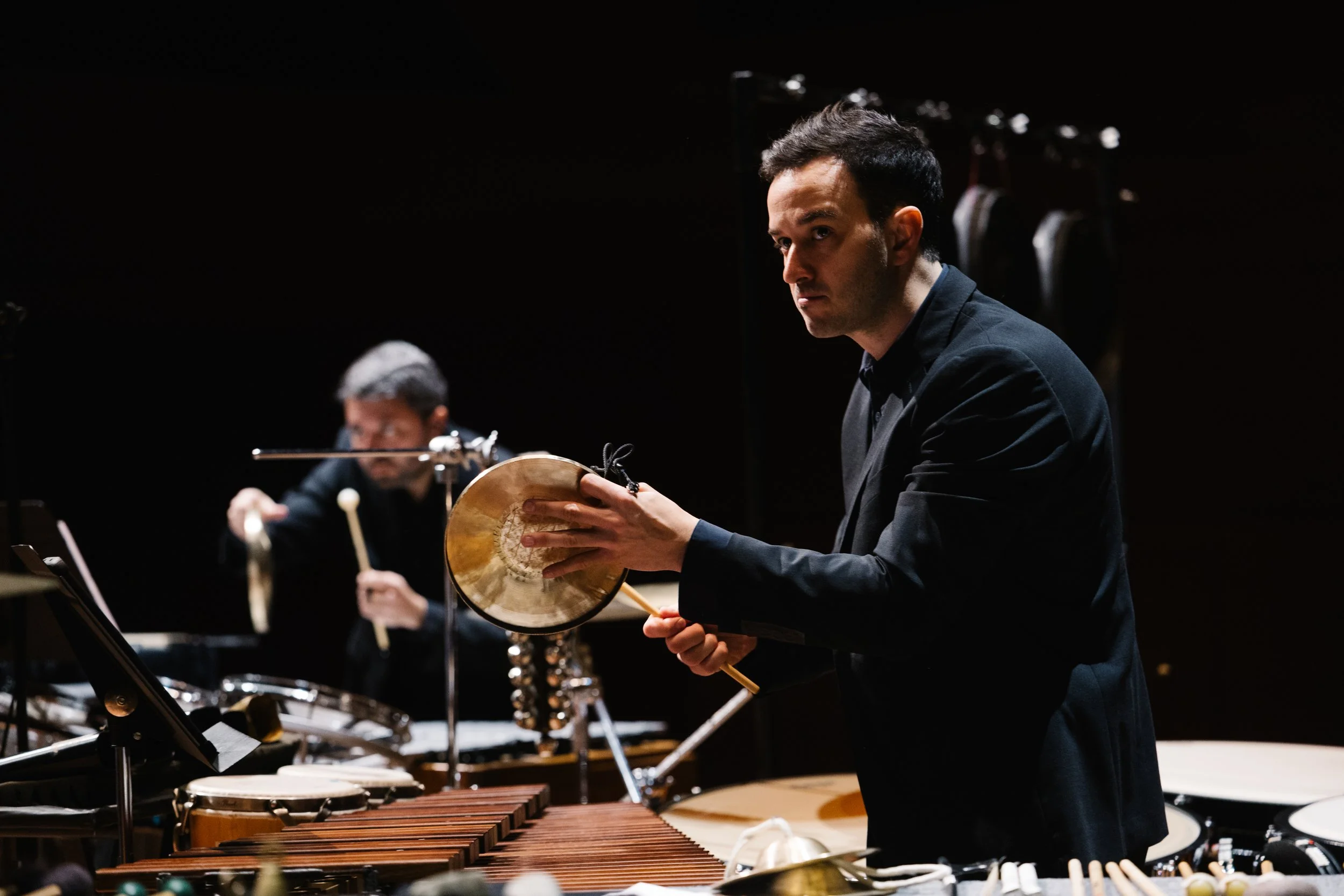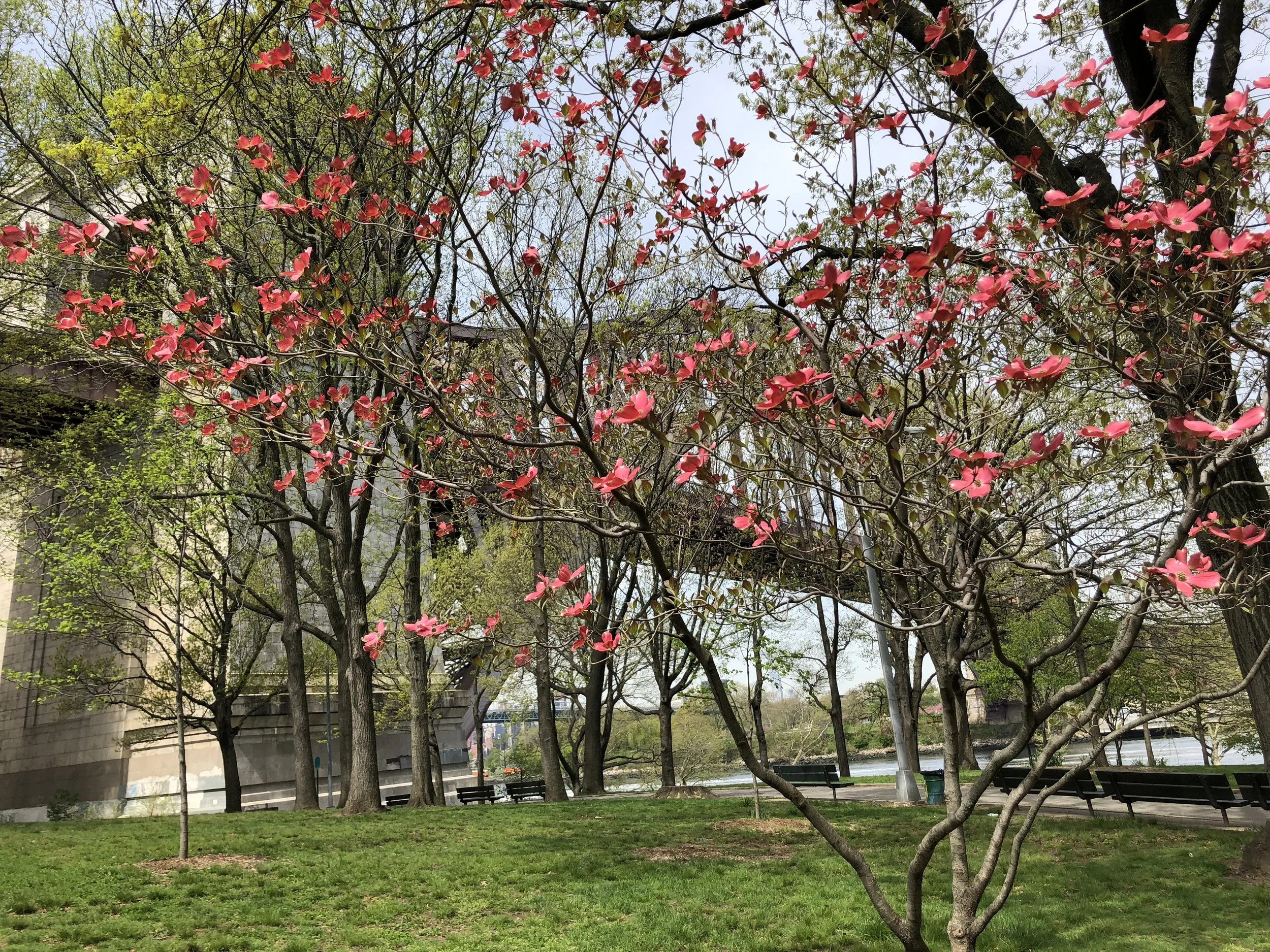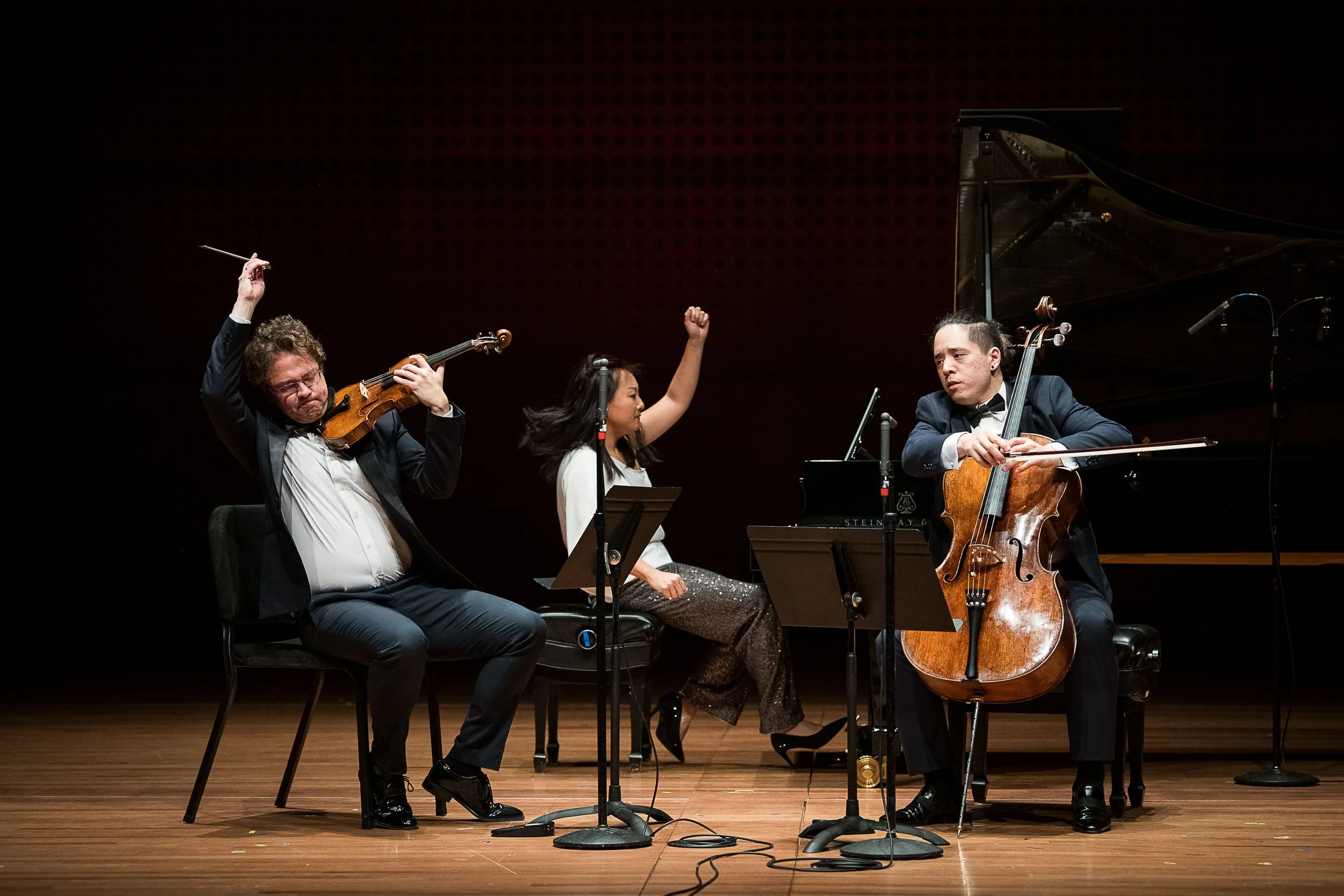REVIEW: Songs and Snow, and a Battery of Percussion
Above photo courtesy of Chamber Music Society of Lincoln Center
May 7, 2024
Powerful stories of humanity enduring oppression and turmoil took the form of epic soundscapes in Chamber Music Society of Lincoln Center’s Songs and Snow, a luxurious performance of a pair of works by the late George Crumb and the Chinese-born Tan Dun, composers who march to the beat of their own drums, while sharing an Ives-ian, pan-musical palette.
The masterful soprano Dawn Upshaw — surely at the height of her powers — delivered a probing performance that grappled with the American experience in Crumb’s The Winds of Destiny (American Songbook IV: Songs of Strife, Love, Mystery and Exultation — A Cycle of American Civil War Songs, Folk Songs, and Spirituals). This massive nine-movement opus for voice, percussion quartet, and amplified piano is drawn from tunes of the composer’s native West Virginia.
The amplified piano was played by experienced Crumb collaborator, Gilbert Kalish, and the percussion quartet, the expert Sandbox Percussion — Jonathan Allen, Victor Caccese, Ian David Rosenbaum, and Terry Sweeney. Crumb’s settings, published in 2004, place familiar melodies — “Mine Eyes Have Seen the Glory,” “When Johnny Comes Marching Home,” and “Go Tell It On the Mountain!” among them — amidst a broader aural canvas that seems to encompass the universe.
The work has been viewed as Crumb’s retort to the Iraq War and opens “like a deserted battlefield under full moonlight,” with the eerie sound of an Australian Aborigine thunderstick. The stage is Rube Goldberg-like: traditional orchestral instruments (timpani, bowed crotales, etc.) are entwined with exotics drawn from non-Western tradition, such as Japanese temple bells, Chinese opera gongs, and Brazilian bamboo scrapers called reco-recos.
Treating the piano as an extension of the percussion section — which utilizes more than 125 instruments, including a drum devised to mimic the sound of a cannon — Crumb tasks the pianist with extended techniques, such as striking the soundboard with marimba mallets, and hitting the strings with the palm of the hand. The effect is ethereal. It appears to be chamber music — but the resulting ocean of sound plumbs depths and crests piercing heights, orchestral in scope.
Above photo courtesy of Chamber Music Society of Lincoln Center
Tan Dun, winner of the Academy and Grammy Awards for his score for the film Crouching Tiger, Hidden Dragon, also expands the tonal color palette, and bridges Eastern and Western traditions. His 1991 response to the Tiananmen Square massacre, Elegy: Snow in June for cello and percussion, is inspired by an ancient Chinese drama, “The Injustice of Dou-Eh,” about a young woman executed for crimes she did not commit. Dun employs a battery of percussion including usual suspects like xylophone, marimba, vibes, and roto-toms, supplemented with novelties like stones, and the tearing of sheets of paper.
Sandbox Percussion brought an urgent elegance to their virtuosity, serving as background players and narrators. Alisa Weilerstein, star of the cello world, brought transcendent technique to Dun’s everything-but-the-kitchen-sink solo writing for the instrument. Weilerstein embodied the tragic heroine, baring her soul in a performance of sacrificial vulnerability.
The music built to a chest-pounding climax. Dun’s relatively youthful Elegy is a riveting and impactful showpiece for the cello, but its overt passion feels wrought and literal; Crumb’s more constrained and elusive Songbook is wise, poetic, and haunting.
Above photo courtesy of Chamber Music Society of Lincoln Center







